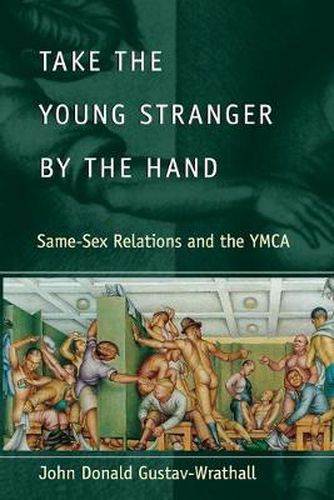Readings Newsletter
Become a Readings Member to make your shopping experience even easier.
Sign in or sign up for free!
You’re not far away from qualifying for FREE standard shipping within Australia
You’ve qualified for FREE standard shipping within Australia
The cart is loading…






The history of American gender and sexuality is examined here through a case study of the YMCA, the organization devoted to young men. The social history of the YMCA has been filled with strife, tragedy and irony, reflecting the struggle and shifting societal mores about masculine friendship and intimacy. In the 19th-century the YMCA was built on intense male friendships that involved economic as well as emotional independence. Some men found in the YMCA an alternative to mainstream patterns of heterosexual marriage and family life, choosing to live their lives as bachelors in community with other men. But with the turn of the century, social perceptions of gender and sexuality began to change and certain forms of male intimacy were regarded as deviant. The text argues that the YMCA grew more hostile to masculine love and sought to expand its control over the emotional and sexual lives of its members through programs in physical training, reinforcing new images of masculinity. Pointing out, ironically, that the YMCA’s gymnasiums and dormitories became primary sites for illicit male sexual encounters.
$9.00 standard shipping within Australia
FREE standard shipping within Australia for orders over $100.00
Express & International shipping calculated at checkout
The history of American gender and sexuality is examined here through a case study of the YMCA, the organization devoted to young men. The social history of the YMCA has been filled with strife, tragedy and irony, reflecting the struggle and shifting societal mores about masculine friendship and intimacy. In the 19th-century the YMCA was built on intense male friendships that involved economic as well as emotional independence. Some men found in the YMCA an alternative to mainstream patterns of heterosexual marriage and family life, choosing to live their lives as bachelors in community with other men. But with the turn of the century, social perceptions of gender and sexuality began to change and certain forms of male intimacy were regarded as deviant. The text argues that the YMCA grew more hostile to masculine love and sought to expand its control over the emotional and sexual lives of its members through programs in physical training, reinforcing new images of masculinity. Pointing out, ironically, that the YMCA’s gymnasiums and dormitories became primary sites for illicit male sexual encounters.